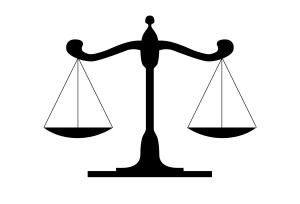 Within the last 20 years, a controversial practice has cropped up in the court reporting profession. Some court reporters have begun contracting exclusively with companies and organizations for large amounts of services. Many court reporters are against such contracting for ethical reasons.
Within the last 20 years, a controversial practice has cropped up in the court reporting profession. Some court reporters have begun contracting exclusively with companies and organizations for large amounts of services. Many court reporters are against such contracting for ethical reasons.
The trend is found with consumers in need of large volumes of court reporting services, such as insurance companies, hospitals, and large corporations. These entities sometimes contract with specific court reporters directly.
Traditionally, court reporters are hired by attorneys representing clients involved in a lawsuit. With contracting, the practice has been that these large corporations and organizations are contracting directly with court reporting firms. The reporting firm who holds the contract will then deliver all the court reporting services needed by the company or organization.
This practice raises ethical questions that are frequently debated in the court reporting industry. Concerns involve the influence a contract-holder may have over the unbiased officer of the court, the court reporter. While this type of bulk buying of services is common in other industries, for court reporters, it may affect, or have the appearance of affecting, the specific duties and requirements of an officer of the court.
Court Reporter Impartiality
MCL 600.1491(1)(a) provides that a court reporter may not “enter into or arrange for any financial relationship that compromises the impartiality of court reporters… or that may result in the appearance that the impartiality of a court reporter…has been compromised.”
One of the highest responsibilities court reporters hold, as officers of the court, is to maintain impartiality.
An officer of the court is a person employed in specific positions in the legal system. Many people think only judges and attorneys are officers of the court. However, there are many other types of individuals who can be considered officers of the court, such as translators, investigators, bailiffs, court clerks and court reporters.
As an officer of the court, a court reporter makes an official record in the presence of a judge, or outside of a judge’s presence. Officers of the court have a duty to be impartial parties. Court reporters are charged with the responsibility of creating an unbiased, true and accurate record of proceedings.
With the practice of offering contracts to insurance companies and companies needing large amounts of services, that impartiality comes into question. Can a court reporter who is engaged in a special-rates contract with one party be considered as impartial? Contracting runs the risk of placing a court reporter in some potentially difficult positions.
For instance, if an attorney feels a portion of the record has not been transcribed accurately and requests changes be made to the transcript, traditionally a court reporter would check the transcript, compare it to the steno notes, and make a determination if an error has been made. If the reporter feels no error has been made, the reporter stands by the transcript as the official record.
With court reporters who contract large amounts of services to one company or organization, this situation may put the court reporter in an extremely difficult position. The court reporter may feel a certain level of obligation to the contracting attorney to make changes to the record. The reporter might fear jeopardizing the contract, which is likely worth thousands, if not hundreds of thousands, of dollars to his or her court reporting firm. Might there be undue pressure placed on the court reporter in this type of circumstance that places bias on the court reporter? Is even just the appearance of undue influence a problem for the court reporting industry?
The debate continues over this controversial issue in the court reporting industry. O’Brien and Bails does not participate in contracting for bulk services specifically because of these ethical concerns.
If this article interests you, you might also be interested in “9 Ethics Guidelines For Court Reporting Firm Owners“.
For a more comprehensive view on court reporting ethics from our perspective, download this free report: “Thoughts on Court Reporter Ethics: From a Court Reporting Firm Owner”.